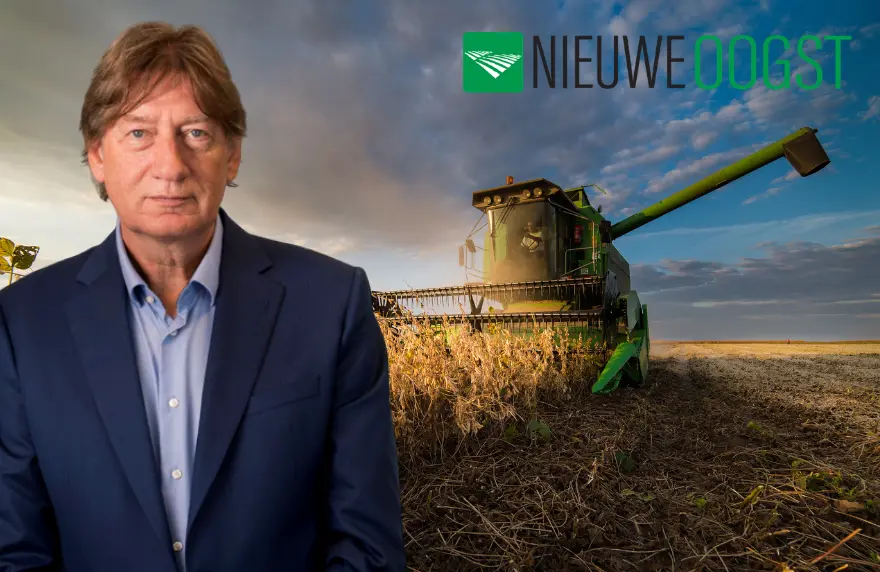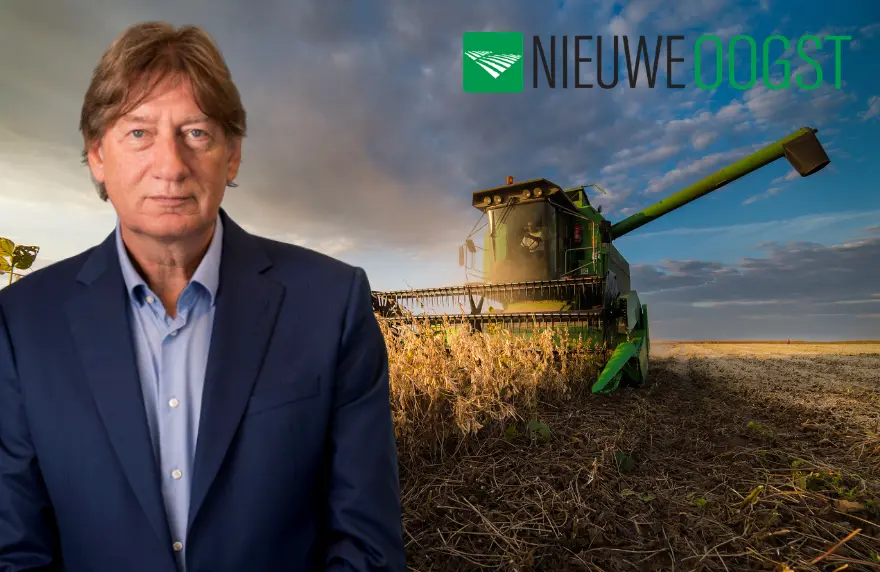Gelukkig. De graanexporten uit Oekraïne zijn op gang gekomen. Toch zal het een hele klus worden om 20 miljoen ton het land uit te krijgen. Want president Poetin is grillig. Als het even tegenzit bombardeert hij de export naar nul.
Voor de rest overheersen de negatieve berichten. Dit jaar gaat de geschiedenis in als het vijf na droogste jaar ooit gemeten. De helft van het totale oppervlak van de EU wordt er deze zomer door getroffen. Oogstprognoses worden naar beneden toe bijgesteld. Er zijn zorgen over de kwaliteit.
Ook buiten Europa is er ongerustheid. Door de oorlog kan mogelijk 20 tot 30 procent van de wintergewassen in Oekraïne niet worden geoogst. Recordtemperaturen en te weinig neerslag bedreigen de Chinese herfstoogst. In Afrika dreigt in 33 landen een ernstig voedseltekort. Op dit moment leiden wereldwijd 800 miljoen mensen honger en nemen de zorgen toe of dit probleem ooit kan worden opgelost.
Voor mij is de conclusie helder: we mogen voedsel nooit als een lokaal vraagstuk zien.
Rob de Wijk, Nieuwe Oogst
Voor mij is de conclusie helder: we mogen voedsel nooit als een lokaal vraagstuk zien. Als het op de ene plek misgaat moet een ander deel van de wereld bijspringen. De urgentie van dit inzicht neemt toe omdat de wereldbevolking in 2050 uit ruim 9 miljard mensen zal bestaan; ruim een miljard meer dan nu. Water, fosfaat en brandstoffen zullen dan vermoedelijk schaarser zijn. Bovendien weten we niet hoe klimaatverandering de oogstvariatie, zoals van graan, in belangrijke landbouwgebieden precies beïnvloed. Het KNMI voorspelt weliswaar meer opbrengsten als de temperatuur met 2 graden stijgt en de C02 concentraties omhooggaan. Maar dat kan weer teniet worden gedaan door ziektes en crises.
Ik heb op deze plek al eerder mijn ergernis uitgesproken over het feit dat deze brede context in Nederland nauwelijks aandacht krijgt. Wie naar het bredere plaatje kijkt kan niet anders dan constateren dat Nederland niet moet inzetten op minder, maar op meer productie. Daarmee neemt Nederland zijn verantwoordelijkheid als innovatieve agrarische natie. Kortom, innovatie moet richtinggevend zijn in het debat.
Helaas spreek ik te veel boeren die niet of nauwelijks meer innoveren omdat een grillige overheid investeringen te risicovol maakt. Het bewijs van het belang van innovatie is de afgelopen decennia overduidelijk bewezen: Nederland produceert méér op minder landbouwgrond, terwijl de bevolking groeit. Dat is een krachtig argument om het beleid te kantelen en in te zetten op nog meer innovatie zodat boeren weer kunnen ondernemen en de stikstofuitstoot wordt gereduceerd.
Rob de Wijk, Nieuwe Oogst



